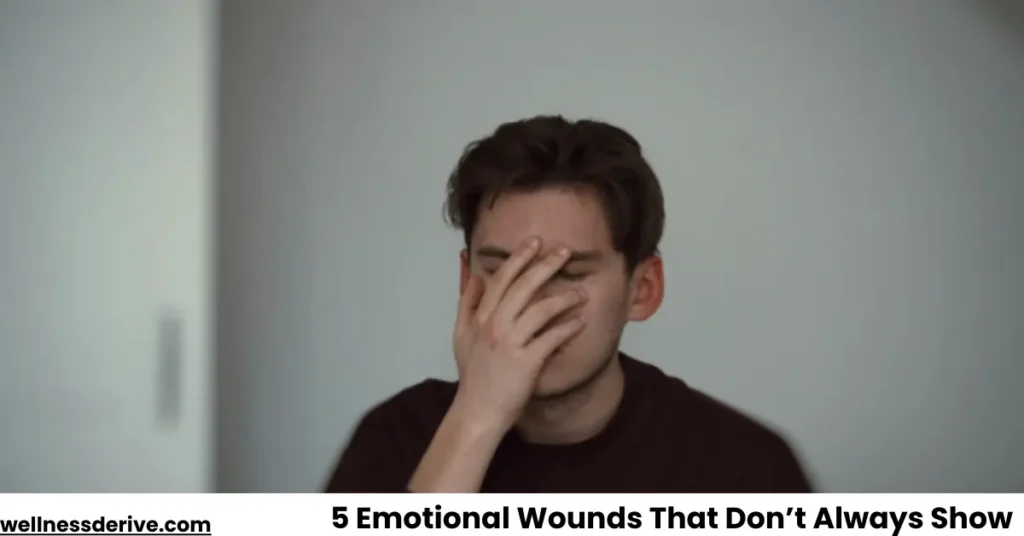Some wounds don’t bruise the skin. They don’t break bones or leave physical scars. But they still sit with you. They shape how you trust people, how you love, and how you protect yourself from getting hurt again.
If you’re in Illinois or anywhere else, and you’ve ever found yourself reacting to something without knowing why, it could be a sign of an emotional wound that never fully healed.
These types of pain aren’t always easy to spot. That’s what makes them hard to talk about. You look fine on the outside, but inside, you might feel like something’s always a little off.
Here are some of those wounds—the quiet ones that don’t always show but deserve just as much care.
1. Rejection That Lingers
There’s something about rejection that cuts deeper than we expect. It doesn’t have to be dramatic to leave a mark. Maybe it was a parent who never really looked up from their own problems. Or a friend who slowly stopped calling. Or a partner who walked away without explanation.
It plants a quiet voice in your head—the one that says, “You’re not enough,” even when you know better. That voice doesn’t show up all at once. It builds. And over time, you start adjusting to it. You avoid conflict. You overdo things and become a people pleaser.
You stay quiet and agreeable. Not because you want to—but because deep down, you’re scared of being pushed aside again. Rejection teaches you to hide the parts of yourself that crave connection most.
2. Betrayal by Someone You Trusted
Trust is fragile. When it breaks, especially early in life, it changes the way you see the world. Betrayal can come from a parent who didn’t protect you, a friend who turned on you, or worse, an institution you were told to trust.
Some people have been hurt by members of the church in ways that go far beyond emotional damage. Children and adults alike have suffered physical, sexual, psychological, and more in silence. These cases highlight the misuse of power by church members, breach of trust, and even spiritual manipulations. People suffer, and they are unsure if anyone will believe them. Sometimes, they don’t even tell their families.
You’ll be surprised to know that the list of accused priests in Illinois includes hundreds of Catholic clergy members. That fact alone is a heavy reminder of how deep this type of betrayal runs. And for many survivors, the effects aren’t just emotional. They’re physical. They show up in the body as tension, confusion, and deep-seated fear of connection.
If you or someone you know has experienced abuse by a clergy member or religious figure, know that legal support exists. There are ongoing efforts to seek justice and accountability through legal channels. Lawyers who specialize in these types of cases can help survivors take the first step, without pressure, and without judgment.
3. Guilt That Wasn’t Yours to Carry
Kids blame themselves for everything. Parents fighting? “It must be me.” Sibling gets hurt? “I should’ve stopped it.” That guilt can stick, even when you logically know it wasn’t your fault.
As an adult, this looks like taking on too much. Apologizing when you didn’t do anything wrong. Feeling like you have to fix everything for everyone. This kind of guilt becomes part of your identity. And letting it go feels uncomfortable—like you’re doing something wrong, even when you’re not.
4. Conditional Love or Approval
If you only felt loved when you achieved something—got good grades, looked a certain way, stayed quiet—that wasn’t love. That was approval with conditions.
As an adult, this shows up in relationships and work. You might feel a constant need to prove yourself. To stay useful. To keep performing. Because somewhere inside, you believe love has to be earned.
It’s exhausting. And it makes it hard to accept love when it’s freely given. You wait for the catch, the criticism, the moment it’s taken away.
5. Loss That Was Never Grieved
Grief doesn’t only come from death. It can come from moving, divorce, the end of a friendship, or even the loss of the childhood you deserved. And when no one helps you grieve, you learn to shut it down.
But grief waits. It shows up years later in ways you don’t expect. In numbness. In a wave of emotion on a random Tuesday. In a pattern of distancing yourself from anything that feels too close.
Unprocessed loss becomes quiet sadness. You might not even know what you’re grieving—just that something feels unfinished.
Closing Thoughts
You don’t need visible scars for your pain to be real. Emotional wounds—especially the quiet ones—can shape your life in ways you don’t even notice until you start unravelling them.
Healing takes time. It doesn’t always come with big moments. Often, it’s in the tiny shifts: setting a boundary, speaking up, letting yourself rest.
The work is slow, but it’s never wasted. Your healing is valid, and you deserve to feel whole again.
Disclaimer: The content on Wellness Derive is for informational purposes only and not a substitute for professional medical advice, diagnosis, or treatment. Always consult a healthcare provider for medical concerns.



